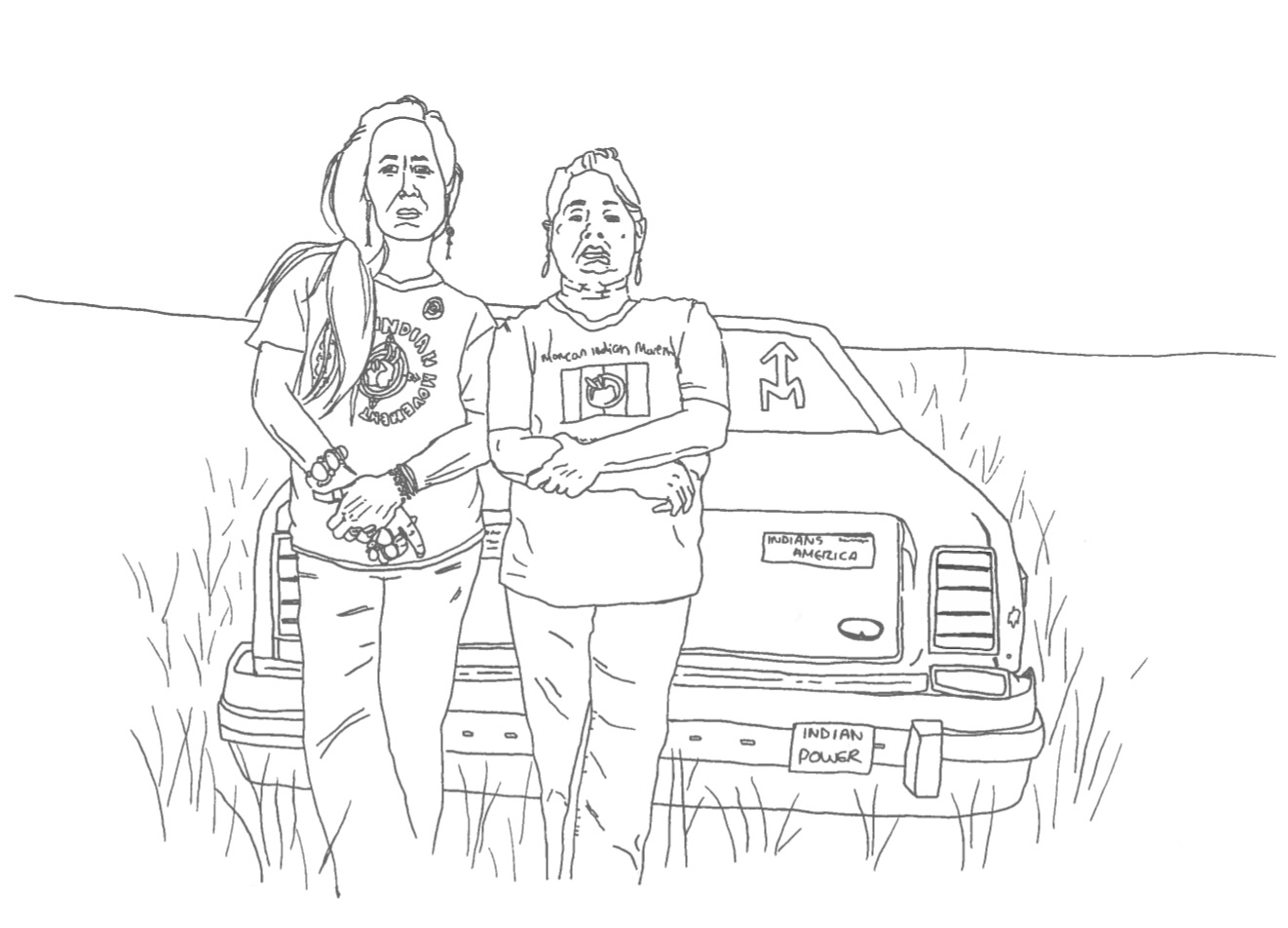On Feb. 4, Cinema Politica presented a series of documentaries by indigenous filmmakers, including a short animation, as part of Concordia University’s First Voices Week. With Flat Rocks and Lil Hard Knox filmmakers Courtney Montour and Karonhiarokwas Roxann Whitebean present to answer questions after the screening, illuminating the processes and intentions behind their works.
Lil Hard Knox (Roxann Whitebean)
Lil Hard Knox affectionately documents the training routine of Shatekaienthokwen ‘Tugar’ VanDommelen, a 10-year-old Mohawk boxer from Kahnawake. VanDommelen practices twice a week at the Hard Knox gym in Saint-Henri, proving that, despite his young age and small size, he has the dedication and commitment it takes to become a true champion.
Whitebean, who is also from Kahnawake, highlights VanDommelen as a source of community pride. Inspired by his father’s own passion for the sport, VanDommelen began boxing at the age of six and has been in the ring ever since. The film praised VanDommelen’s drive and showcased the support that his parents and the athletic community provided with. Lil Hard Knox portrays a community coming together to help a young athlete realize his promise.
Heart (Sam Karney)
In its brisk three-minute runtime, Heart takes its viewers into Winnipeg’s North End neighbourhood, where 24.6 per cent of the population is indigenous. Due to the low socioeconomic status of the area, the North End has taken on an unfavourable perception to outsiders. Karney challenges the pervasive negative stereotypes that plague the indigenous community, compounded by high crime rates and economic despair. Instead of doom, he finds perseverance; instead of despair, he finds hope. Through Karney’s lens, the North End becomes a place full of warmth and kindness—a place that people proudly call home.
Heart from Ice River Films on Vimeo.
Flat Rocks (Courtney Montour)
In the 1950s, the Canadian government began construction on the Saint Lawrence Seaway, a series of canals and channels connecting Montreal’s harbour to the Great Lakes. While planners framed the project as a progressive undertaking in pursuit of economic development, the construction of the Seaway had devastating impacts on the Kahnawake Mohawk territory near Montreal.
Montour investigates the story of 79-year-old farmer Louis Diabo’s resistance to the Seaway’s construction. She begins by showing home videos from before the construction began, replete with wholesome summer activities like family barbecues on the river and children splashing in the water. Montour then juxtaposes this footage with images of Seaway workers digging around Diabo’s farmhouse—the construction that caused his well to dry up and rendered the home uninhabitable.
“The things that dredge right into the community are just never ending,” Montour said after the screening, mentioning the Mercier Bridge and Autoroute 30 expansion. “The seaway severed our connection to the water and [interrupted] our traditional diet, our skills, the fishing, and the way that people gathered.”
Biidaaban (The Dawn Comes) (Amanda Strong)
Director Amanda Strong uses stop-motion animation to tell the story of Biidaaban, a non-binary Anishinaabe person, as they try to collect sap from maple trees in suburban neighbourhoods with the help of spirits. Through almost surrealist depictions of the dreary houses moving in and attacking Biidaaban, the short presents a poignant critique of settler society urbanizing land traditionally used by indigenous peoples.
Biidaaban (The Dawn Comes) Teaser from Spotted Fawn Productions on Vimeo.
Warrior Women (Christina King and Elizabeth Castle)
Warrior Women brings female American Indian Movement (AIM) leaders together to reminisce about their activism from the 1960s to the present. The legacy of Madonna Thunder Hawk’s Survival School, a movement which cultivated a generation of young indigenous women, plays a key role in the film, looking at how the resistance of the AIM transformed future generations of indigenous American activists.
Each film provided a distinct perspective on indigenous life. At the end of the event, Montour emphasized that the effects of colonialism represented throughout the night are not only historical issues, but, rather, persisting realities across North America.
Although First Voices Week finished on Feb. 8, Cinema Politica screens independent political film and video every Monday evening at Concordia’s H-110.









